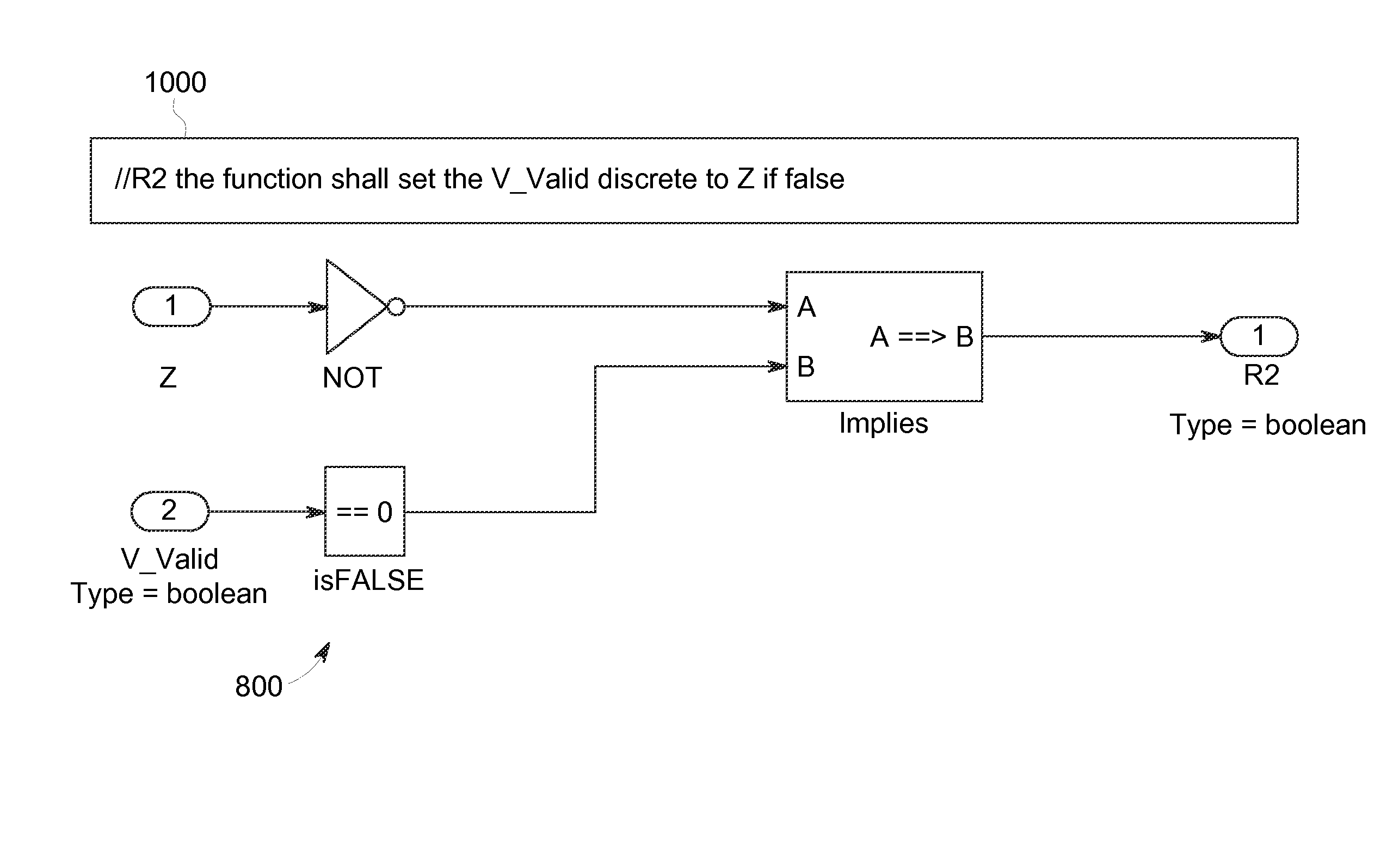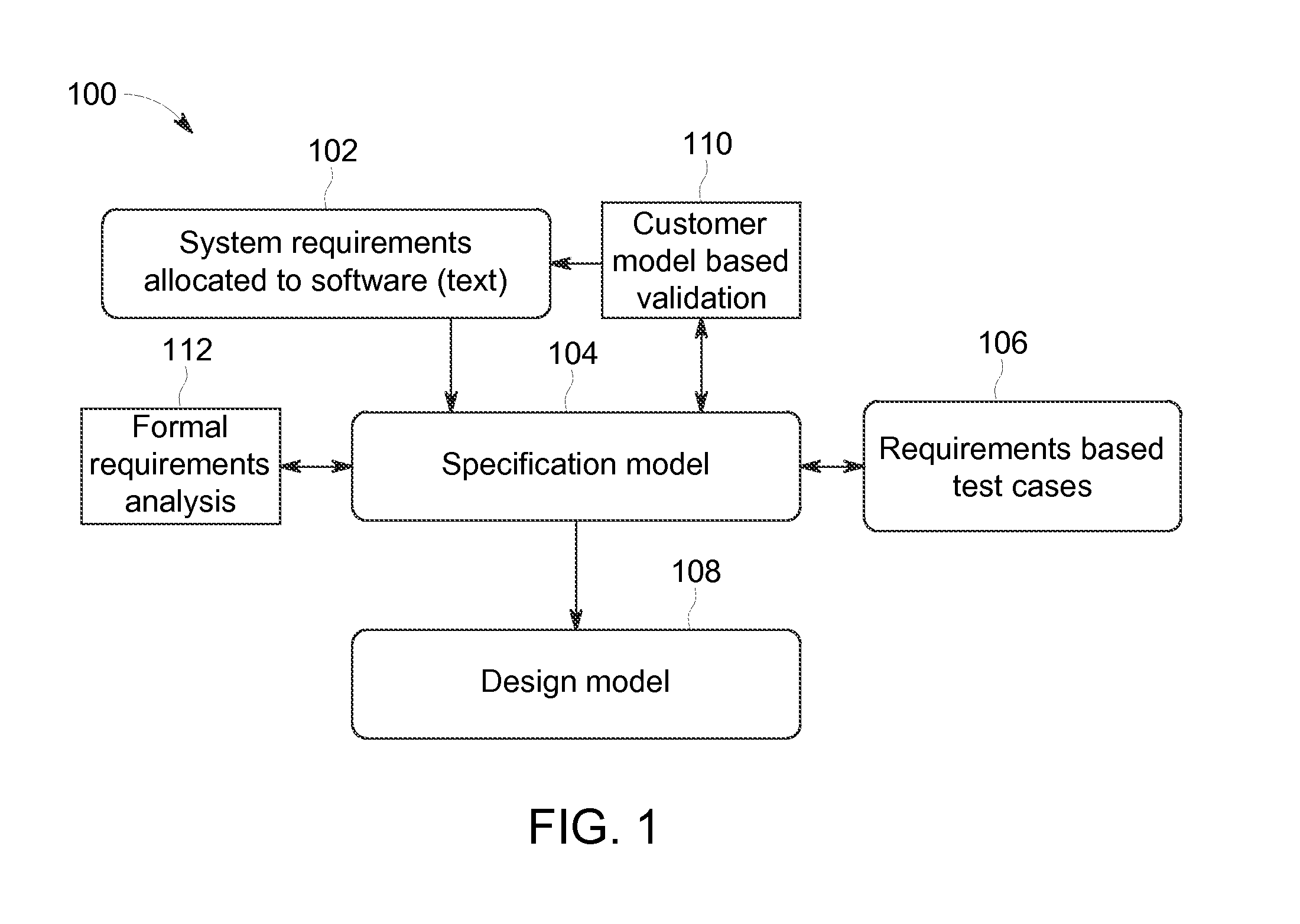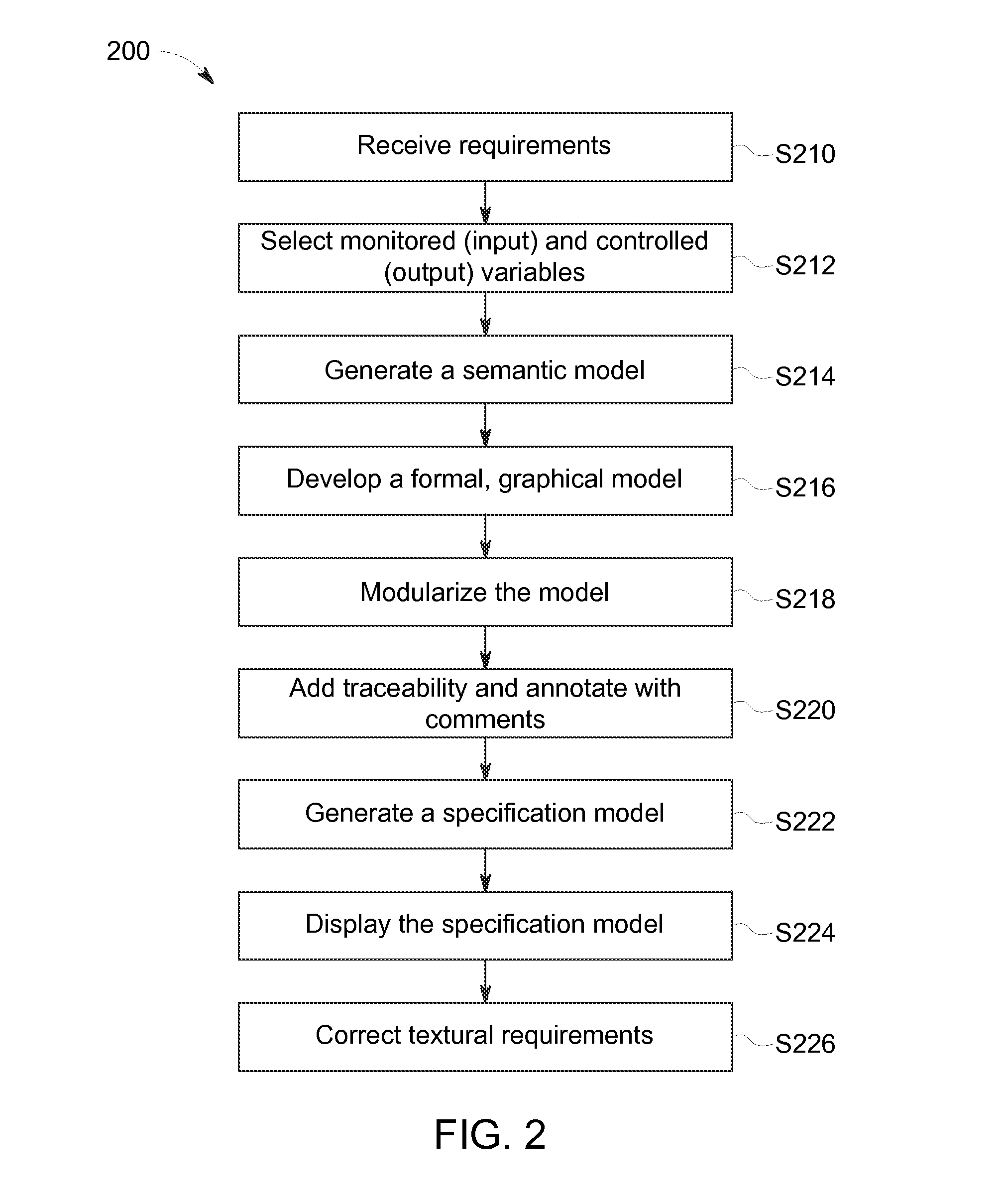Method and system of software specification modeling
a software specification and modeling technology, applied in the field of methods and systems of software specification modeling, can solve the problems of time-consuming process that includes flaws, failure to find flaws, and cost to fix a fault in the system test phase 10 to 15 times more expensiv
- Summary
- Abstract
- Description
- Claims
- Application Information
AI Technical Summary
Benefits of technology
Problems solved by technology
Method used
Image
Examples
Embodiment Construction
[0017]Developing a system with a software component often may involve system requirements provided by a customer. The different requirements may be written with differing levels of detail depending on, for example, the context and the available knowledge of the author. Typically, effort is then spent on manually reviewing and analyzing the requirements for completeness and consistencies. Ambiguities inherent in textual expression provided in the requirements may result in flaws implemented in the software. These flaws may not be found until system verification and test phases for the software component. In some areas, the cost to fix a fault or flaw in the system test phase is 10 to 15 times more expensive than if the fault is caught early during the requirements, engineering or design phases.
[0018]Traditionally, the software development process involves a non-model based approach that begins with system requirements allocated to software, refined into high-level requirements, and t...
PUM
 Login to View More
Login to View More Abstract
Description
Claims
Application Information
 Login to View More
Login to View More - R&D
- Intellectual Property
- Life Sciences
- Materials
- Tech Scout
- Unparalleled Data Quality
- Higher Quality Content
- 60% Fewer Hallucinations
Browse by: Latest US Patents, China's latest patents, Technical Efficacy Thesaurus, Application Domain, Technology Topic, Popular Technical Reports.
© 2025 PatSnap. All rights reserved.Legal|Privacy policy|Modern Slavery Act Transparency Statement|Sitemap|About US| Contact US: help@patsnap.com



